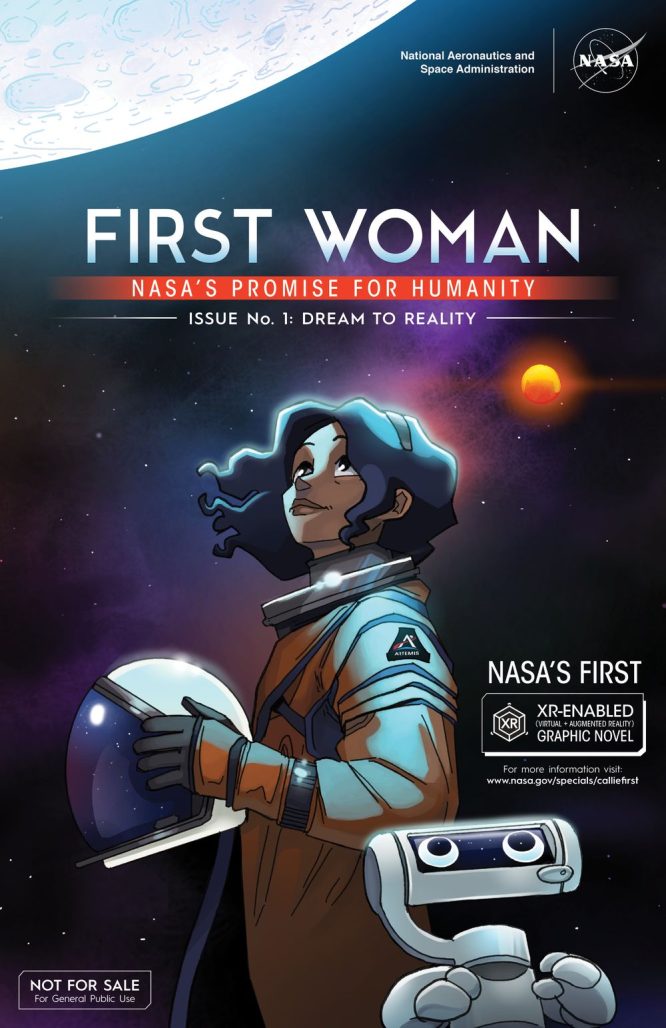I always love when NASA has a booth at these sorts of cons. It's fun to see them showing off what they're working on, and this year, it's a graphic novel and interactive experience called First Woman. First Woman follows Callie Rodriguez, the first woman and person of color to set foot on the moon. She is accompanied by a robot, RT. The graphic novel is written by Brad Gann and Steven List and illustrated by Brent Donoho and Kaitlin Reid. The first volume is 44 pages, with some front matter and back matter, and you can download First Woman here, for free. You can also check out its interactive experiences.

The comic itself has a particular style, which I can only describe as cute and certainly accessible for younger audiences, who are the target of the First Woman experience. It's meant to encourage young girls and people of color to think about NASA as a career, even hoping some of them shoot for the stars and being an astronaut. Actually, being an astronaut was a dream of mine as a kid, but I was destined for the humanities, not for STEM.
The first volume alternates between Callie actually on the moon, and her telling her story of how she even became an astronaut to begin with, and the tale she tells definitely shows a lot of extremely hard work to get there. NASA and the team behind this comic aren't saying its easy to be an astronaut in this comic, which is appreciated. It's a long, tough journey, filled with education and development and training.
The only thing I didn't really enjoy was the robot RT, who's a little annoying. They're kind of an animal sidekick from a Disney movie who's actually a robot. RT does play a major role in how Callie becomes an actual astronaut, however, so hopefully they will decrease in annoyance as they go along.
NASA has a goal to place a woman and people of color on the moon as their next phase, and I can only hope they get to that point. It's only been nearly fifty years since the last moonwalk by American astronauts, so it would be nice to get back, and maybe even form a stepping stone to Mars. The intervening fifty years for NASA have seen a lot of progress and promise for women and people of color in space exploration; I can only hope the next fifty years, however, will be better than the last fifty, which were tough in many ways for NASA.
If you have a little kid interested in becoming an astronaut or joining NASA at all, I'd recommend checking out First Woman.
Miss any of our other NYCC '21 coverage? Click here to check it out!


No comments:
Post a Comment